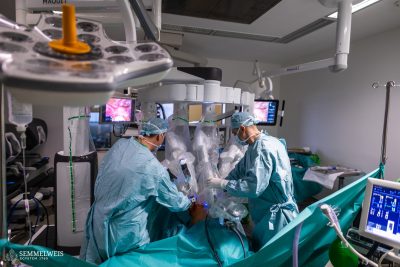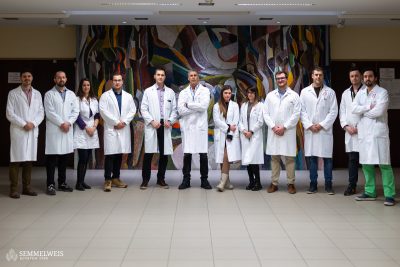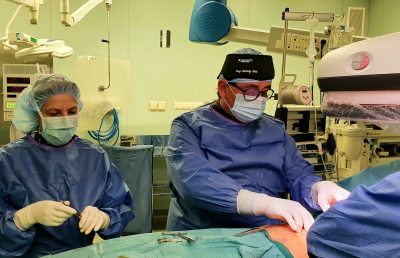The Department of Psychiatry and Psychotherapy, member of the Eat2be NICE project together with 17 other European healthcare institutions, is doing research on the link between nutrition, lifestyle and mental health. The project is part of the Horizon 2020 (H2020) research programme supported by the European Union investigating the manifestation and underlying causes of attention deficit/hyperactivity disorder (ADHD) in adults.
“The European guidelines regarding the diagnosis and treatment of adult ADHD have recently been updated, which proves that the disease is gradually getting more and more attention internationally as well.”, said Dr. István Bitter, professor of the Department of Psychiatry and Psychotherapy.
Several projects running parallel within the framework of the H2020 programme are doing research on the development and therapeutic possibilities of the disease. The projects are not restricted to research on ADHD, but are trying to identify tendencies, such as impulsivity, which are typical of other mental disorders as well.
(The video on the research programme aiming to better understand ADHD may be viewed here as well.)
“As member of the Eat2beNICE project, Semmelweis University’s Department of Psychiatry and Psychotherapy are going to examine the effects of dietary supplements currently available on the market, which supposedly affect mental health.”, Dr. István Bitter said.
Based on the latest research results, it is likely that nutrition and intestinal flora affect brain functions. Along with the already existing medication and recommendations regarding lifestyle, treatment of a patient with mental disorders may substantially improve thanks to these findings.
ADHD is a neurodevelopmental disorder starting in childhood and extending into adulthood in many cases.
“ADHD in adults became widely recognised only at the beginning of the 2000s in Europe. Earlier it had not even been part of the curriculum and patients had not been diagnosed, even if based on recent data, 3-5% of the population are affected, accounting for 300,000-500,000 cases in Hungary alone.”, said Dr. István Bitter.
Several research projects were started at the Department or with the participation of the Department’s researchers back then and have been going on since. The main projects include research on the genetic background lead by Dr. János Réthelyi and mapping brain activity with the help of imaging technologies lead by Dr. Pál Czobor.
“The use of imaging technologies revealed that the brain around the cingulum was damaged in a special way in patients suffering from ADHD.”, said Dr. István Bitter.
The overall clinical diagnosis is being researched as well: the factors contributing to development of ADHD and the type of available therapies. Beside the research projects, an adult ADHD outpatient clinic was opened at the Department in 2006, which is the largest of its kind in Hungary and is also incomparable in Central Europe.
Eszter Keresztes
Photo (illustration): Attila Kovács – Semmelweis University
Translation: Ágnes Raubinek


